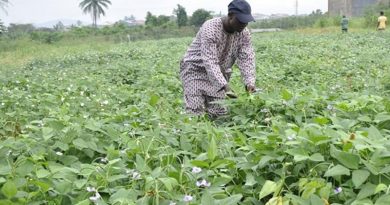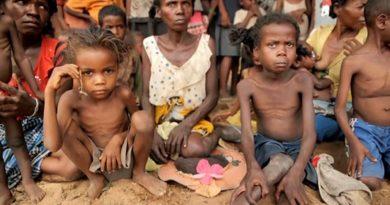FG’s decision to allow massive food imports can destroy the agro sector
The President of the African Development Bank Group, Dr. Akinwumi Adesina, has expressed concern over Nigeria’s decision to permit extensive food imports, stating that it poses a threat to the country’s agriculture sector. Nigeria’s Minister for Agriculture, Abubakar Kyari, announced on July 10 that the Federal Government would waive duties, tariffs, and taxes on the importation of maize, husked brown rice, wheat, and cowpeas for 150 days through land and sea borders.
Adesina conveyed his disappointment regarding Nigeria’s recent policy to open its borders for large-scale food imports in response to short-term food price increases. He emphasized that relying on food imports could jeopardize the progress and investments made in Nigeria’s agriculture sector. Adesina stressed the importance of Nigeria producing more food to stabilize prices, create employment opportunities, and reduce foreign exchange expenditure to support the stability of the Naira.
Nigeria must not rely on food imports to address food insecurity, as stated by Adesina. He emphasized the importance of Nigeria feeding itself independently and with pride, cautioning against becoming dependent on other nations for food. The event, focused on ‘Food security and financial sustainability in Africa: The role of the Church’, brought together clergymen from the Council of Anglican Provinces of Africa (CAPA), representing over 40 million Anglicans across the continent.
The gathering, hosted by His Grace the Most Reverend Henry C. Ndukuba, aimed to strengthen bonds of friendship and collaboration among African Anglican leaders, fostering the sharing of collective wisdom and experiences. Emeritus Nigerian Professor of Science Education, Olugbemiro Jegede, highlighted the significance of the event, noting the presence of African Anglican leaders and millions of Anglicans listening to the discussions.
Adesina emphasized that Africa holds 65 percent of the world’s uncultivated arable land, which is crucial for feeding the projected 9.5 billion people by 2050. He stressed that the continent’s approach to agriculture will have a significant impact on global food security. Adesina also highlighted the economic potential of the food and agriculture market in Africa, projecting it to reach $1 trillion by 2030.
Adesina also informed the Primates about the African Development Bank’s $25 billion initiative aimed at revolutionizing agriculture. This program aims to provide advanced agricultural technologies to 40 million farmers and achieve food self-sufficiency in Africa by 2030. Additionally, he discussed the Bank’s efforts to address the challenges posed by climate change through financial investments and the Technologies for African Agricultural Transformation (TAAT) program.
According to the Bank president, TAAT has enabled Ethiopia to transition into a net exporter of wheat within five years, significantly boosting Sudan’s wheat production, and aiding countries in Eastern and Southern Africa to maintain food production amidst prolonged drought conditions.
For Nigeria, Adesina mentioned, “In collaboration with the Islamic Development Bank and the International Fund for Agricultural Development, we have allocated $520 million to assist in establishing Special Agricultural Processing Zones, enabling private agribusinesses to set up industries for processing and adding value to agricultural commodities.”
Moreover, the Bank allocated $134 million to Nigeria for emergency food production to help reduce food price inflation by greatly enhancing local wheat and cassava production under the national Agricultural Growth Scheme.
Adesina encouraged the Nigerian government to capitalize on the Bank’s investments and support for African farmers, demonstrate stronger determination and commitment to achieving food self-sufficiency, and provide incentives for private sector agribusinesses.
To aid Africa’s aspirations of advancing in the global agricultural value chains, the African Development Bank Group and its partners are backing the development of 28 Special Agro-Industrial Processing Zones (SAPZs) in 11 countries, with $4.5 billion mobilized to date.
Representing the Chairman of the Council of Anglican Provinces of Africa and Bishop of Northern Zambia, Most Reverend Albert Chama, the Archbishop of the Anglican Church of Kenya, Most Reverend Dr. Jackson Ole Sapit, emphasized the importance of collaboration between the Bank Group and the Anglican Church.
“The African Development Bank and the Church can achieve significant progress by combining resources for the holistic transformation of the African continent. By working together, we can truly make a difference,” stated Ole Sapit.
The church’s role as a catalyst for change was highlighted by Adesina, who stressed the need for visionary leaders to address agricultural challenges in Africa. This involves advocating for government policies to combat hunger and malnutrition, establishing church-led food banks and social protection programs, investing in rural commercial farms, addressing climate change issues, promoting agricultural entrepreneurship among youth, and demanding financial transparency and accountability from governments.




